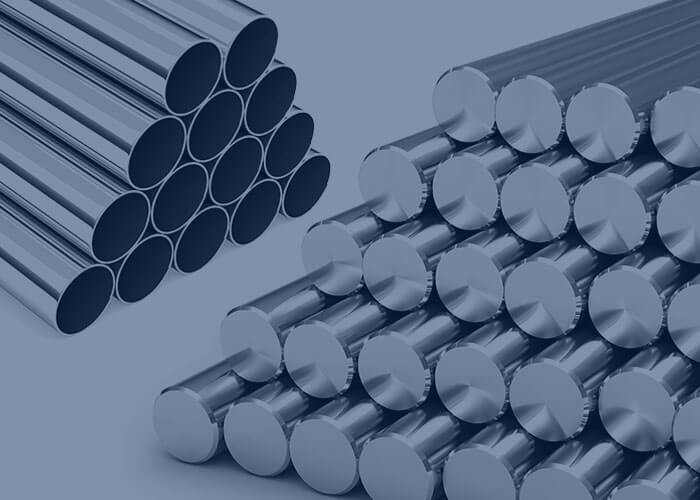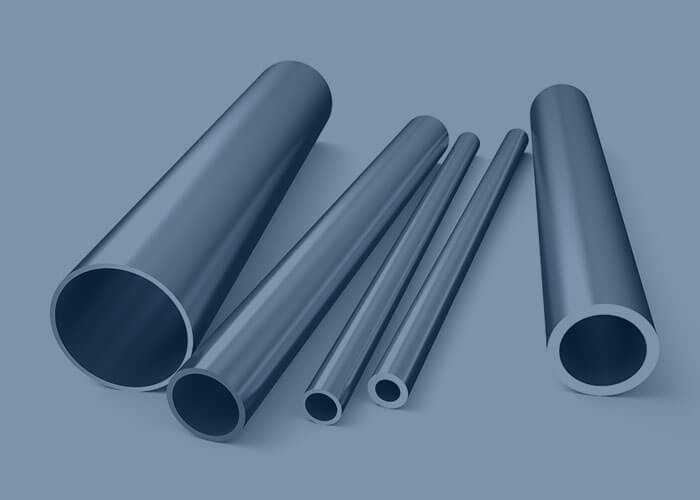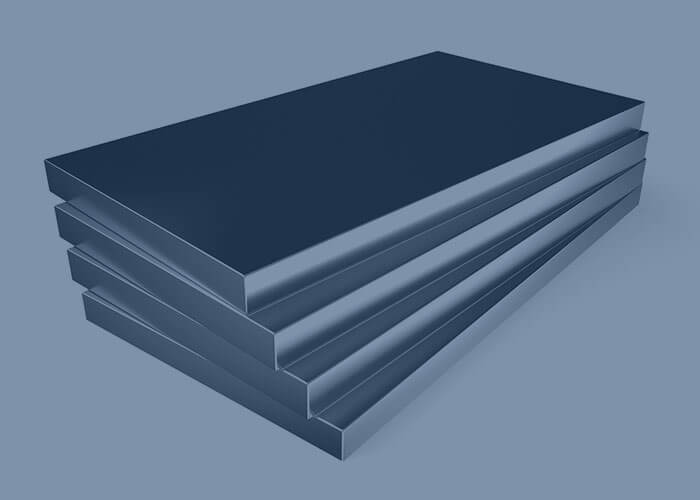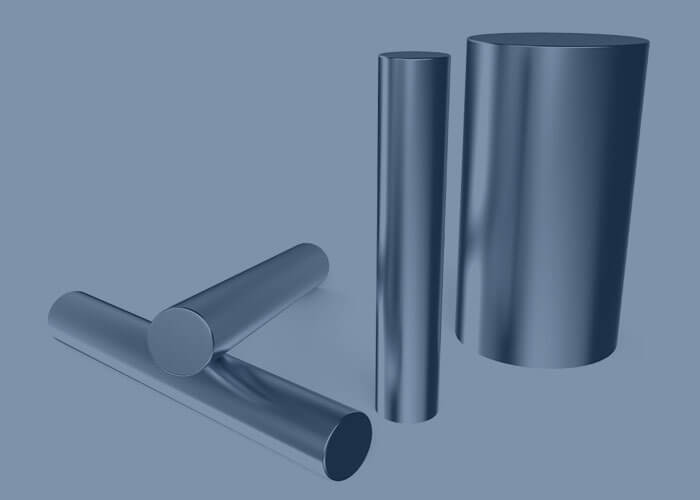What Is Inconel Alloy?
Inconel alloys stand as advanced nickel-chromium superalloys designed to excel in high-temperature, corrosive, and oxidizing conditions.
Their applications span the most challenging environments, including chemical processing reaction chambers, valves, polymer granule manufacturing, military uses, gas turbine components, oil fields, and high-end marine applications.
Typically composed of nickel, chromium, iron/steel, and additional elements such as molybdenum, titanium, and copper, Inconels offer exceptional strength, abrasion resistance, toughness, and favorable weldability.
It’s crucial to recognize that “Inconel” is a trademark registered by Special Metals Corporation. Therefore, when acquiring Inconel 625, you are purchasing their specific product.
In instances where this alloy is produced and sold under a generic name, it is commonly referred to as nickel alloy 625. This nomenclature extends across the entire Inconel alloy family and their generic equivalents.
History of Inconel
Inconel 718, developed by Special Metals, stands as a contemporary superalloy, initially optimized on July 24th, 1962.
The genesis of this alloy emerged directly from a decade-long exploration aimed at creating a nickel-chromium-molybdenum-niobium (Ni-Cr-Mo) superalloy, known as Inconel 625 (Special Metals®).
The term “super-alloy” originated post-World War II to characterize metals crafted for tanks and superchargers requiring heightened performance in extreme temperatures. The impetus for this endeavor was a high-strength material featured in steam liners for pipes transporting pressurized vapor in plants.
Today, Inconel 718 (Special Metals®) stands as one of the most widely utilized metals in the aerospace industry, prominently featured in engines, motors, and heat exchangers.
What Are the Different Grades of Inconel Alloy?
1. Inconel 600 Alloy

Inconel alloy 600 (UNS N06600 / W.Nr. 2.4816) is a standard engineering material for applications which require resistance to corrosion and heat. The alloy also has excellent mechanical properties and presents the desirable combination of high strength and good workability.
The high nickel content gives the alloy resistance to corrosion by many organic and inorganic compounds and also makes it virtually immune to chloride-ion stress-corrosion cracking. Chromium confers resistance to sulfur compounds and also provides resistance to oxidizing conditions at high temperatures or in corrosive solutions. The alloy is not precipitation hardenable; it is hardened and strengthened only by cold work.
The versatility of alloy 600 has led to its use in a variety of applications involving temperatures from cryogenic to above 2000°F (1095°C).
The alloy is used extensively in the chemical industry for its strength and corrosion resistance. Applications include heaters, stills, bubble towers and condensers for processing of fatty acids; evaporator tubes, tube sheets and flaking trays for the manufacture of sodium sulfide; and equipment for handling abietic acid in the manufacture of paper pulp.
2. Inconel 601 Alloy

Inconel alloy 601 (UNS N06601 / W.Nr. 2.4851) is a general-purpose engineering material for applications that require resistance to heat and corrosion. An outstanding characteristic of alloy 601 is its resistance to hightemperature oxidation. The alloy also has good resistance to aqueous corrosion, has high mechanical strength, and is readily formed, machined and welded. The composition is a facecentered- cubic solid solution with a high degree of metallurgical stability.
The alloy’s nickel base, in conjunction with substantial chromium content, provides resistance to many corrosive media and hightemperature environments. Oxidation resistance is further enhanced by the aluminum content.
The properties of alloy 601 make it a material of broad utility in such fields as thermal processing, chemical processing, pollution control, aerospace, and power generation.
Alloy 601 is a standard material of construction for various types of thermal-processing equipment. Industrial-heating applications include baskets, trays, and fixtures for annealing, carburizing, carbonitriding, nitriding and other heat-treating operations. In industrial furnaces, the alloy is used for radiant tubes, muffles, retorts, flame shields, strand-annealing tubes, woven-wire conveyor belts, chain curtains, burner nozzles, and electrical resistance heating elements.
Other thermal-processing applications are thermocouple protection tubes, furnace-atmosphere generators, and infrared radiant screens.
3. Inconel 625 Alloy

Inconel 625 (UNS N06625 / W.Nr. 2.4856) is a solid solution alloy with high strength and excellent corrosion resistance. It can be used at room temperature or at temperatures as high as 1800°F (982°C).
Inconel 625 alloy adds molybdenum and niobium elements to Inconel 600. Both of these elements are excellent solid solution strengthening elements. They give Inconel 625 higher strength than similar alloys. In addition, molybdenum is very resistant to reductive corrosion. It also gives the alloy better resistance to severe corrosion.
Due to its excellent corrosion resistance, a typical application of Inconel 625 is marine. Its resistance to localized corrosion (pitting and crevice corrosion), chloride ion stress corrosion, and its excellent fatigue strength make it widely used in marine parts such as propeller blades, exhaust pipes, and fasteners.
For ambient temperature applications, Inconel 625 is recommended to be delivered annealed.
4. Inconel 690 Alloy
Inconel alloy 690 (UNS N06690 / W. Nr. 2.4642) is a high-chromium nickel alloy having excellent resistance to many corrosive aqueous media and hightemperature atmospheres.
In addition to its corrosion resistance, alloy 690 has high strength, good metallurgical stability, and favorable fabrication characteristics.
The substantial chromium content gives the alloy outstanding resistance to oxidizing chemicals and to high-temperature oxidizing gases.
The high level of nickel imparts resistance to stresscorrosion cracking in chloride-containing environments as well as to sodium hydroxide solutions.
The properties of alloy 690 are useful for various applications involving nitric or nitric/hydrofluoric acid solutions. Examples are tail-gas reheaters used in nitric acid production and heating coils and tanks for nitric/hydrofluoric solutions used in pickling of stainless steels and reprocessing of nuclear fuels.
The alloy’s resistance to sulfur-containing gases makes it an attractive material for such applications as coal-gasification units, burners and ducts for processing sulfuric acid, furnaces for petrochemical processing, recuperators, incinerators, and glass vitrification equipment for radioactive waste disposal.
5. Inconel 718 Alloy

Inconel alloy 718 (UNS N07718 / W.Nr. 2.4668) is a high-strength, corrosion-resistant nickel chromium material used at -423° to 1300°F.
The age-hardenable alloy can be readily fabricated, even into complex parts. Its welding characteristics, especially its resistance to postweld cracking, are outstanding.
The ease and economy with which alloy 718 can be fabricated, combined with good tensile, fatigue, creep, and rupture strength, have resulted in its use in a wide range of applications.
Examples of these are components for liquid fueled rockets, rings, casings and various formed sheet metal parts for aircraft and land-based gas turbine engines, and cryogenic tankage. It is also used for fasteners and instrumentation parts.
6. Inconel 725 Alloy
Inconel® alloy 725 (UNS N07725) is a nickelchromium-molybdenum-niobium alloy that is highly resistant to corrosion and is age hardenable for extremely high strength.
It has essentially the same corrosion resistance as alloy 625, which is widely used in a broad range of severely corrosive environments.
The strength of age-hardened alloy 725 is of the order of twice that of annealed alloy 625.
Because the strength of alloy 725 is developed by heat treatment, not by cold work, ductility and toughness remain high.
Also, strength can be imparted to large or non-uniform sections that cannot be strengthened by cold work.
7. Inconel X-750 Alloy

Inconel alloy X-750 (UNS N07750 / W.Nr. 2.4669) is a precipitation-hardenable nickel-chromium alloy used for its corrosion and oxidation resistance and high strength at temperatures to 1300°F.
Although much of the effect of precipitation hardening is lost with increasing temperature over 1300°F, heat-treated material has useful strength up to 1800°F.
Alloy X-750 also has excellent properties down to cryogenic termperatures.
The economics of alloy X-750 coupled with its availability in all standard mill forms has resulted in applications in a wide variety of industrial fields.
In gas turbines, it is used for rotor blades and wheels, bolts, and other structural members.
Airframe applications include thrust reversers and hot-air ducting systems.
Large pressure vessels are formed from alloy X-750. Other applications are heat-treating fixtures, forming tools, extrusion dies, and test machine grips.
8. Inconel 617 Alloy

Inconel alloy 617 (UNS N06617 / W.Nr. 2.4663a) is a solid-solution, strengthened, nickel-chromium-cobalt-molybdenum alloy with an exceptional combination of high-temperature strength and oxidation resistance. The alloy also has excellent resistance to a wide range of corrosive environments, and it is readily formed and welded by conventional techniques.
The high nickel and chromium contents make the alloy resistant to a variety of both reducing and oxidizing media. The aluminum, in conjunction with the chromium, provides oxidation resistance at high temperatures. Solid-solution strengthening is imparted by the cobalt and molybdenum.
The combination of high strength and oxidation resistance at temperatures over 1800°F (980°C) makes Inconel alloy 617 an attractive material for such components as ducting, combustion cans, and transition liners in both aircraft and land-based gas turbines. Because of its resistance to high-temperature corrosion, the alloy is used for catalyst-grid supports in the production of nitric acid, for heat-treating baskets, and for reduction boats in the refining of molybdenum. The alloy 617 also offers attractive properties for components of power-generating plants, both fossilfueled and nuclear.
Special Properties of Inconel Alloy
Inconel material is recognized for its exceptional performance, maintaining its effectiveness even at elevated temperatures approaching its melting point.
The microstructure and inherent physical properties of Inconel alloys contribute to their outstanding corrosion resistance and oxidation resistance, surpassing that of many other metals.
Usages and Applications of Inconel Alloy
- Automotive parts
- Marine applications
- Oil and gas industry
- Gas turbine blades
- Combustion chambers
- Chemical rocket combustion chambers
- High-pressure chemical reaction chambers
- Pollutant separation in harsh environments
- Oil field extraction processing systems
Advantages and Disadvantages of Inconel Alloy
The combination of elements in superalloys results in an alloy endowed with superior physical and mechanical properties.
These alloys exhibit heightened strength and increased resistance to corrosion, oxidation, and high temperatures, rendering them indispensable in industries such as power generation.
However, one drawback of Inconel superalloys can be their cost.
Another potential challenge with nickel alloys lies in their difficulty to work with. Inconel’s exceptional strength and corrosion resistance make it an ideal material for extreme environments.
Nevertheless, these very properties pose difficulties in stamping and deep drawing, as the alloy may be prone to cracking, wrinkling, or tearing during manufacturing processes.
How Much Does an Inconel Alloy Cost?
The pricing of the alloy is heavily influenced by the specific alloy grades and the form in which the product is supplied.
Generally, a seamless tube tends to be pricier compared to a plate or bar.
The standard delivery state is solutionized, and prices typically commence at approximately $40 per kilogram for stock products.
What Is the Melting Point of Inconel Alloy?
The majority of Inconel alloys have a melting point of approximately 1,400 °C, comparable to that of stainless steels.
What Is the Heat Treatment for Inconel Alloy?
There are two fundamental types of heat treatment applied to Inconel alloys:
1.Solution Annealing: Conducted at temperatures ranging from 925 to 980 °C, followed by quenching in water.
2.Precipitation Hardening: Implemented at 720 °C for 8 hours, followed by a gradual cooling to 620 °C. The alloy is held at this temperature for 18 hours for aging and then exposed to the atmosphere at room temperature for natural cooling.
The Differences Between Nimonic And Inconel Alloys
While Inconel material exhibits remarkable durability under pressure, those involved in applications with gas turbines or internal combustion engines might find Nimonic alloys worth considering.
Similar to Inconel, Nimonic alloy is a nickel superalloy developed through materials science, showcasing resistance to heat and corrosion.
Both alloys are widely uased in various industries demanding superior performance in challenging conditions.
It’s worth noting that, due to its chromium content, Inconel tends to be pricier than Nimonic alloy.
The Differences Between Stainless Steels And Inconel Alloys
When comparing stainless steel and Inconel alloy, it’s crucial to recognize that each has various formulations.
Different grades of stainless steel exhibit significant differences in tensile strength, recommended operating temperature, and resistance to specific corrosive elements.
For instance, 316L stainless steel typically displays greater resistance to chlorides than 304 stainless steel, albeit at a higher average cost.
In contrast, Inconel 625® surpasses grade 304 stainless steel in tensile strength and excels in maintaining that strength at elevated operating temperatures, despite having a lower melting point than 304 stainless steel.
Inconel alloys are particularly well-suited for heat treating applications and other processes involving high temperatures. On the other hand, stainless steels are often preferred for sterile manufacturing or medical applications.
How to Choose the Right Inconel Alloy Strip Foil Supplier?
Selecting the appropriate Inconel alloy strip foil supplier involves considering several key factors to ensure reliability, quality, and suitability for your specific needs.
Here are guidelines to help you make an informed decision:
1.Material Expertise:
Choose a supplier with expertise in Inconel alloys strips foils, demonstrating a deep understanding of the material’s properties, applications, and variations.
2.Product Quality:
Prioritize suppliers known for delivering high-quality Inconel alloy strip foils. Look for certifications or quality standards adhered to by the supplier.
3.Customization Options:
Consider suppliers who offer customization options such as various thicknesses, widths, slitted edge and surface finishes. This flexibility ensures that the supplied material aligns precisely with your project specifications.
4.Reliability and Reputation:
Research the supplier’s reputation in the industry. Look for reviews, testimonials, or references from other customers. A reliable supplier should have a track record of consistent quality and on-time deliveries.
5.Production Capacity:
Evaluate the supplier’s production capacity to ensure they can meet your volume requirements. A supplier with ample production capabilities is better equipped to handle both small and large orders.
6.Logistics and Distribution:
Consider the supplier’s logistics capabilities and distribution network. A supplier with efficient shipping and delivery processes can help minimize lead times and ensure timely receipt of materials.
7.Cost Considerations:
While cost is a factor, it should not be the sole determinant. Consider the overall value offered by the supplier, considering factors such as quality, customization, and reliability.
8.Compliance and Certification:
Ensure that the supplier complies with industry standards and regulations. Check for relevant certifications that demonstrate their commitment to quality and compliance.
9.Communication and Support:
Choose a supplier with clear communication channels and responsive customer support. Effective communication is vital for addressing any concerns, discussing specifications, and ensuring a smooth collaboration.
10.Long-Term Relationship:
Consider the potential for a long-term partnership. A supplier committed to building lasting relationships is more likely to prioritize customer satisfaction and provide ongoing support.
By carefully evaluating these factors, you can identify a reliable Inconel alloy strip foil supplier that aligns with your specific requirements and contributes to the success of your projects.
Conclusion
Overall, all the grades of Inconel alloys are very useful and play a key role in the morden industry.
Inconel alloy serves in extreme environments because of its high strengths, high service temperatures, and extreme corrosion resistance.
The successful and dependable use of Inconel alloys in specific applications requires proper selection of grade, handling, and understanding of their limitations.
HZW provides a wide range of manufacturing capabilities and other value-added services for all of your stainless steel strips and nickel based alloys strips needs.
If you need the Inconel alloy strips and foils products from us, please kindly contact us here.
More Resources:
Inconel® Alloys – Source: American Special Metals, Corp.
Inconel®: Definition, How It Is Made, Its Uses, and Its Types – Source: Xometry
Inconel – Source: Wikipedia












